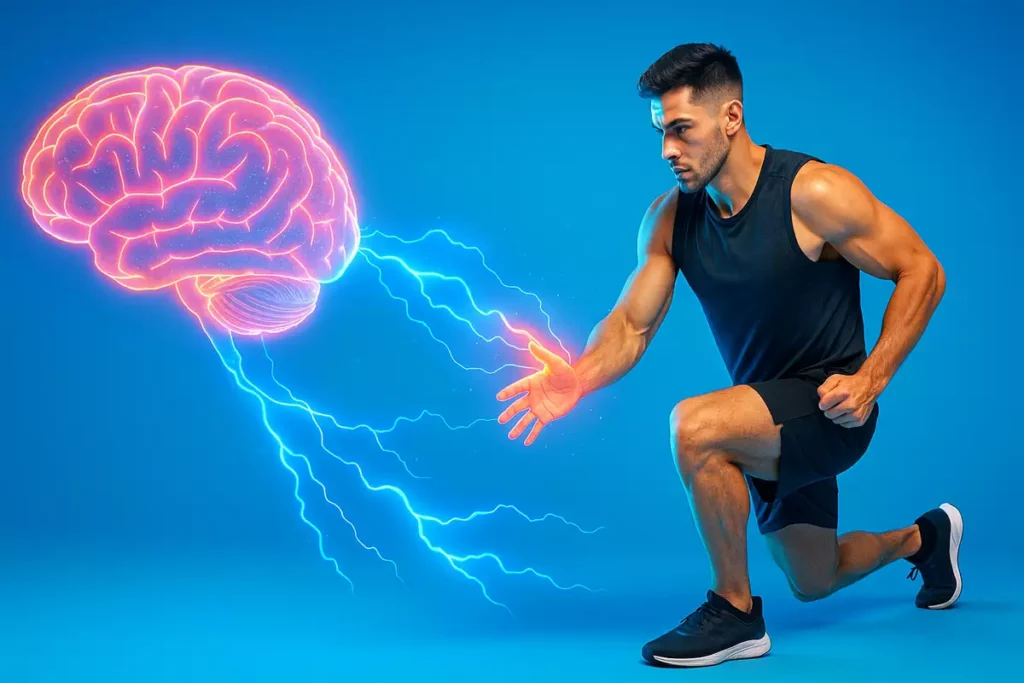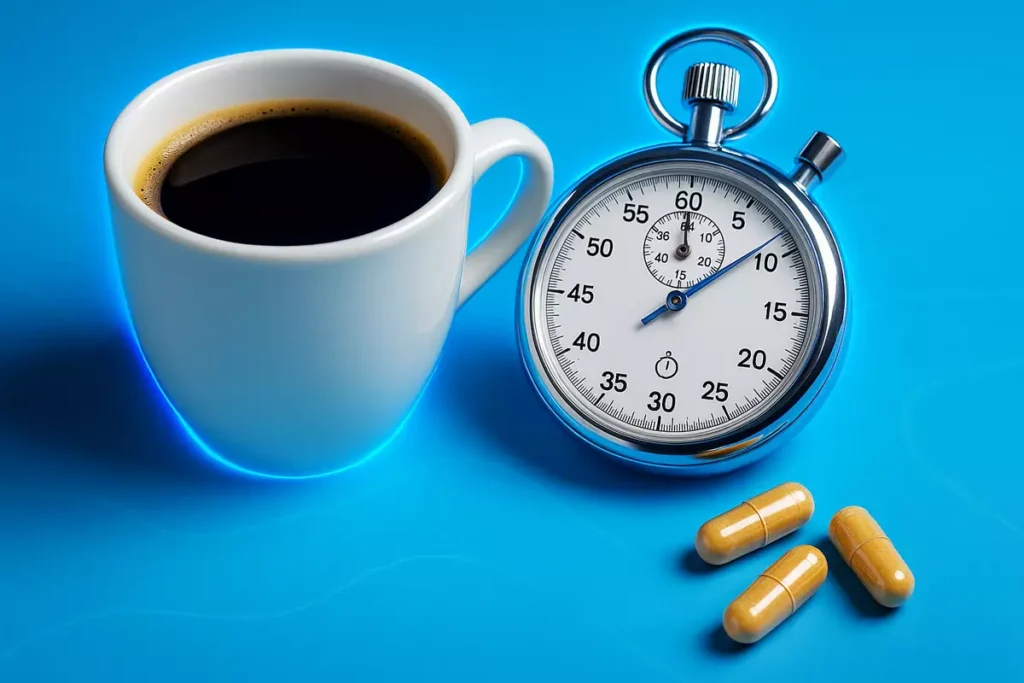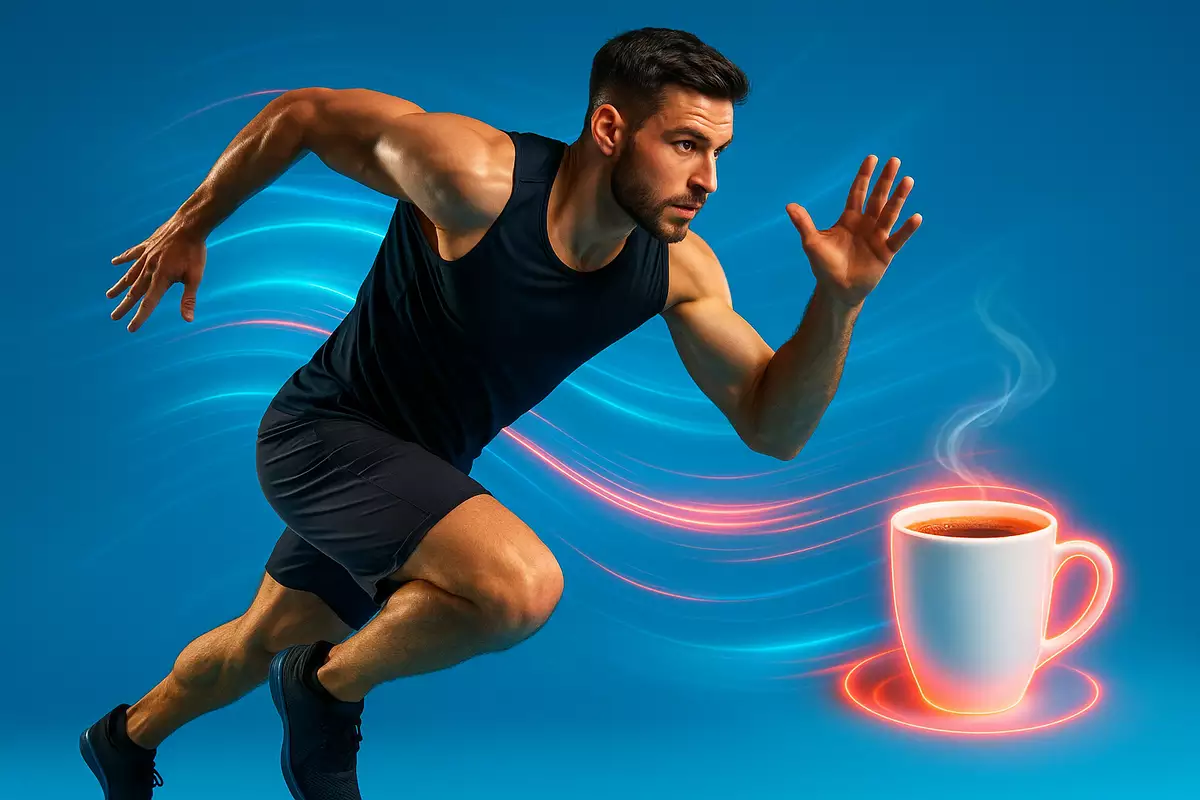Ever wondered why some athletes seem instantly ready to react, while others lag behind?
The secret could be as simple as caffeine.
This natural performance booster doesn’t just wake you up—it sharpens your brain, speeds up your reflexes, and helps you respond faster in sports.
Whether you’re sprinting, boxing, or chasing a ball, caffeine gives you the edge to react at lightning speed when it matters most.
Table of contents
Quick Answer
If you want to react faster in sports, caffeine can be a real game-changer.
It works by stimulating your central nervous system, making you more alert, focused, and quick to respond. From sprinting off the starting line to reacting to a fast ball, caffeine sharpens the brain-to-muscle connection so you can move faster when it counts.
As a fitness trainer, I’ve seen this not only in myself but also in my clients. A simple cup of coffee before training has often made the difference between being “a step late” and “right on time.”
The Science Behind Caffeine and Reaction Time

Caffeine blocks adenosine receptors in the brain, which are responsible for feelings of tiredness.
When these are blocked, your neurons fire more rapidly, leading to faster signal transmission. This means your brain processes information quicker, and your muscles respond in less time.
Think of it as removing the brakes from your nervous system. Instead of feeling sluggish, your reaction time becomes quicker and sharper.
For a deeper dive into caffeine’s impact on overall performance, check out how caffeine improves athletic performance and caffeine benefits for strength and endurance.
Practical Benefits for Athletes
In real sports scenarios, faster reaction time can mean everything.
- Sprints: I’ve noticed that after caffeine, my starts off the line are much more explosive. The body feels “ready to go” without hesitation.
- Ball Games: One of my clients, Lucas from Spain, a soccer player, told me his acceleration during short sprints improved when he had a coffee before matches. He felt quicker to chase down balls and react to sudden plays.
- Combat Sports: Maya from Canada, who trains in boxing, shared how caffeine capsules helped her stay alert during pad drills. She could respond faster to her coach’s quick combinations, which made her sharper in training.
Caffeine doesn’t give you new skills—it simply helps your brain and body communicate faster so you can use your skills more effectively.
If you’re curious about the best forms of caffeine for athletes, explore caffeine anhydrous vs natural caffeine or see the best caffeine supplements for runners and cyclists.
Optimal Dosage and Timing

From both science and my personal coaching experience, the sweet spot lies around 150–200 mg of caffeine (about 1.5–2 cups of coffee).
Taking it 30–45 minutes before training or competition seems to work best.
Personally, I always go for one strong coffee before workouts. It gives me enough focus without overdoing it. When I tried higher doses, I felt jittery and distracted instead of sharp.
For athletes, I always recommend starting small. Test how your body responds to 100 mg (about one small cup of coffee), then adjust upwards if needed.
For more guidance, see this detailed resource on caffeine safe dosage for athletes.
Possible Side Effects and Safety Tips
Like anything, too much caffeine can backfire.
- Sleep Issues: I once made the mistake of taking a double scoop pre-workout with over 300 mg of caffeine. My workout felt intense, but I couldn’t sleep until late at night.
- Jitters and Racing Heart: Arjun from India, one of my basketball clients, tried strong energy drinks before evening games. He loved the in-game focus, but later complained about his heart racing and restless nights.
To stay safe, I recommend:
- Keep caffeine under 400 mg per day (the widely accepted safe upper limit).
- Avoid high doses late in the day.
- Stick to natural sources like coffee or tea if possible—they’re easier to control compared to energy drinks or strong pre-workouts.
If you want to combine sharper focus with calm energy, read more about caffeine with L-theanine. You may also find it useful to understand how caffeine boosts metabolism and fat burning, especially if fat loss is one of your goals.
Final Takeaway for Athletes

Caffeine can absolutely improve reaction time in sports.
It sharpens your focus, speeds up brain-to-muscle communication, and gives you that edge when quick decisions matter.
From my experience and the stories of my clients, the key is to use caffeine smartly: find the right dose, time it before training or competition, and avoid going overboard.
If you want to react faster, feel more alert, and maximize your performance, caffeine is one of the simplest and most effective tools you can use.
Just remember—your sweet spot might be different from someone else’s, so listen to your body and adjust.



Leave a Reply